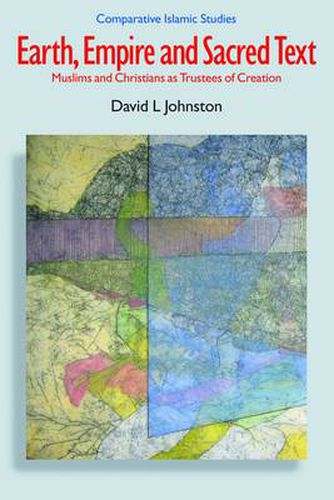Readings Newsletter
Become a Readings Member to make your shopping experience even easier.
Sign in or sign up for free!
You’re not far away from qualifying for FREE standard shipping within Australia
You’ve qualified for FREE standard shipping within Australia
The cart is loading…






Earth, Empire and Sacred Text examines the Muslim-Christian theology of creation and humanity, aiming to construct a dialogue to enable both faiths to work together to preserve our planet, to bring justice to its most needy inhabitants, and to contribute to peace-building. Earth, Empire and Sacred Text opens with an analysis of the influential shift from the Cartesian view of the autonomous, disembodied self to a self defined in discourse, community and culture. The career of Q. 2:30 (Adam’s God-mandated trusteeship) is then traced, from Islamic commentaries of the classical period to writings of Muslim scholars in the modern and postmodern periods. This is examined alongside the concept of human trusteeship under God in Christian and Jewish writers. The book concludes by highlighting the essential elements for a Muslim-Christian theology of human trusteeship.
$9.00 standard shipping within Australia
FREE standard shipping within Australia for orders over $100.00
Express & International shipping calculated at checkout
Earth, Empire and Sacred Text examines the Muslim-Christian theology of creation and humanity, aiming to construct a dialogue to enable both faiths to work together to preserve our planet, to bring justice to its most needy inhabitants, and to contribute to peace-building. Earth, Empire and Sacred Text opens with an analysis of the influential shift from the Cartesian view of the autonomous, disembodied self to a self defined in discourse, community and culture. The career of Q. 2:30 (Adam’s God-mandated trusteeship) is then traced, from Islamic commentaries of the classical period to writings of Muslim scholars in the modern and postmodern periods. This is examined alongside the concept of human trusteeship under God in Christian and Jewish writers. The book concludes by highlighting the essential elements for a Muslim-Christian theology of human trusteeship.